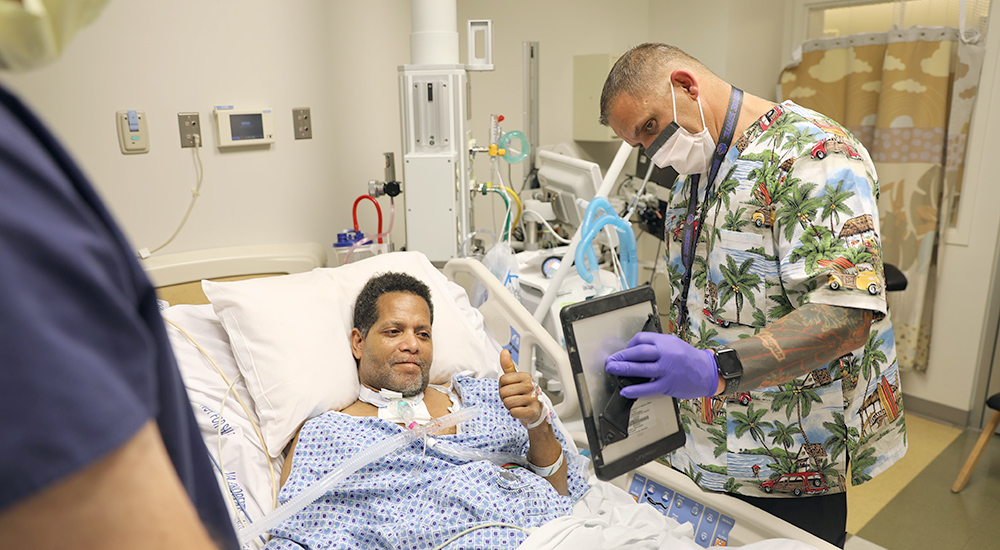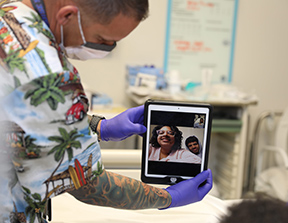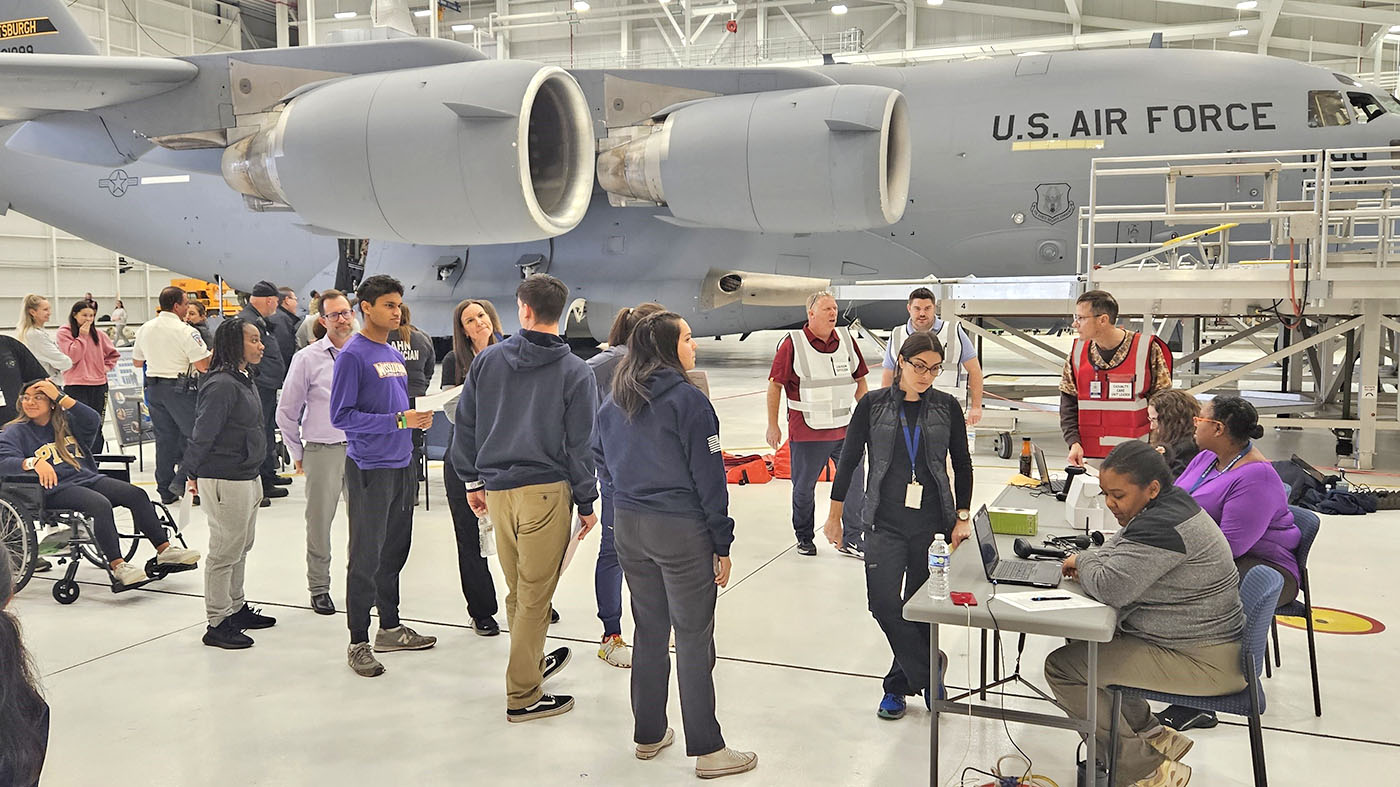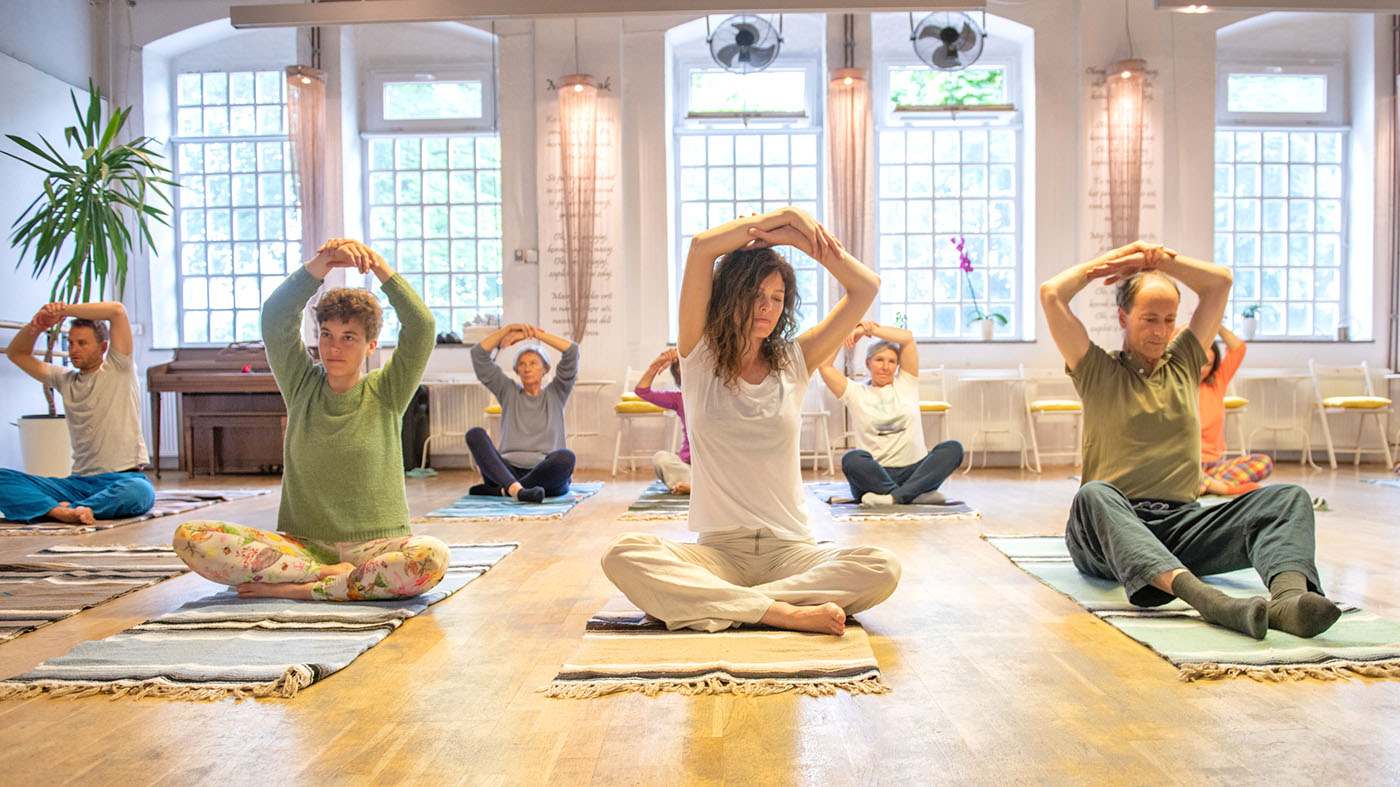At a time when so many must rely on video chats to communicate, it can feel like a reminder of how far apart friends and family are from one another. But sometimes the chance to see and hear a loved one on a video screen can bring a family hope and a loved one the strength to carry on.
Due to a no-visitor policy implemented as part of COVID-19 mitigation efforts, VA Southern Nevada Healthcare System (VASNHS) social workers have been working with inpatient Veterans and their families to set up video chat sessions to provide virtual visitation.
For Ronald Pipkins and his children, these conversations bring strength and perseverance.
Pipkins was admitted to the medical center March 2 for pneumonia. After developing a fever, he was tested for COVID-19. Within 24 hours, his results came back as a presumptive positive. The first COVID-19 patient in the state of Nevada, Pipkins spent much of the last month on a ventilator in a medically induced coma while battling the illness.
On the road to recovery
Initially, his family was able to keep up on his status in person through hospital visits and see him through the glass of his isolation room. However, due to COVID-19 precautionary measures, VASNHS leadership suspended in-person visits. The family relied on regular communication with VA social workers to stay updated on his condition.
Now awake and on the road to recovery, Pipkins is no longer testing positive for COVID-19. As a result, he has been moved from isolation to a specialized room in intensive care. On his first day awake, social workers were able to arrange a video chat for him with his children.
“It was amazing to be able to talk to him for the first time,” said Pipkins’ daughter Jaela. “It’s been really hard to not be with him. I know he was frustrated not being able to physically talk yet, but it’s great to see his face and to be able to tell him we love him.”
During their emotional call, Pipkins and his children spent more than 30 minutes together. Despite the physical difficulties he has with verbal communication, Pipkins’ speech grew stronger as the conversation went on.
“Seeing my family gives me the strength to continue to fight harder to get home. I’m hoping my kids can help me fully recover.”
Due to his current medical condition, Pipkins is only able to speak in short, quiet sentences. He has made progress in his recovery since waking from his coma. The virtual visitation with his family had an immediate impact.
Helping the family with the paperwork
VA social worker Jim Powers and his coworkers have helped the Pipkins family in more ways than just virtual visitation. Social workers also have guided Jaela, a 20-year-old college student, through the process of working through the VA.
“In the past week, Jim has contacted me four times,” she said. “They’ve helped me to figure out all the paperwork that I didn’t know how to do. Without that, I would have been lost.”
Powers is just one of many dedicated VA employees who have been by Pipkins’ side throughout his battle with COVID-19. “Everyone here has been really good to me. I’ve always said about the VA ‘it’s the best health care I have ever received.’ This tops it. People are dying from this, but they saved me here.”
Pipkins’ family is optimistic he will be released from the hospital soon. And for them, the selfless care from the emergency department, nurses, doctors and social workers have made a huge impact. “The care from the VA saved his life,” Jaela said.
John Archiquette is a public affairs specialist for the VA Southern Nevada Healthcare System.
Topics in this story
More Stories
Air Force Veteran Shireta Jones overcomes obstacles with support from VA and adaptive devices to continue her passion for pickleball.
Pittsburgh VA and its partners practice relocating hospitalized patients during disasters and public health emergencies.
VA and Veterans Yoga Project are working together to make more Veterans aware of the benefits of yoga while offering more classes.







